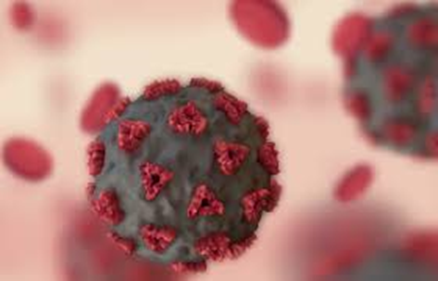Infectious diseases
Overview
Infectious diseases are disorders caused by organisms — such as bacteria, viruses, fungi or parasites. Many organisms live in and on our bodies. They're normally harmless or even helpful. But under certain conditions, some organisms may cause disease.
Some infectious diseases can be passed from person to person. Some are transmitted by insects or other animals. You may get others by consuming contaminated food or water or being exposed to organisms in the environment.
Signs and symptoms vary depending on the organism causing the infection, but often include fever and fatigue. Mild infections may respond to rest and home remedies, while some life-threatening infections may need hospitalization.
Many infectious diseases, such as measles and chickenpox, can be prevented by vaccines. Frequent and thorough hand-washing also helps protect you from most infectious diseases.
Symptoms
Each infectious disease has its own specific signs and symptoms. General signs and symptoms common to a number of infectious diseases include:
Fever
Diarrhea
Fatigue
Muscle aches
Coughing
When to see a doctor
Seek medical attention if you:
Have been bitten by an animal
Are having trouble breathing
Have been coughing for more than a week
Have severe headache with fever
Experience a rash or swelling
Have unexplained or prolonged fever
Have sudden vision problem
You may be particularly vulnerable to infectious diseases if:
You're taking steroids or other medications that suppress your immune system, such as anti-rejection drugs for a transplanted organ
You have HIV or AIDS
You have certain types of cancer or other disorders that affect your immune system
In addition, certain other medical conditions may predispose you to infection, including implanted medical devices, malnutrition and extremes of age, among others.
Complications
Most infectious diseases have only minor complications. But some infections — such as pneumonia, AIDS and meningitis — can become life-threatening. A few types of infections have been linked to a long-term increased risk of cancer:
Human papillomavirus is linked to cervical cancer
Helicobacter pylori is linked to stomach cancer and peptic ulcers
Hepatitis B and C have been linked to liver cancer
In addition, some infectious diseases may become silent, only to appear again in the future — sometimes even decades later. For example, someone who's had chickenpox may develop shingles much later in life.
Prevention
Follow these tips to decrease the risk of infection:
Wash your hands. This is especially important before and after preparing food, before eating, and after using the toilet. And try not to touch your eyes, nose or mouth with your hands, as that's a common way germs enter the body.
Get vaccinated. Vaccination can drastically reduce your chances of contracting many diseases. Make sure to keep up to date on your recommended vaccinations, as well as your children's.
Stay home when ill. Don't go to work if you are vomiting, have diarrhea or have a fever. Don't send your child to school if he or she has these signs, either.
Prepare food safely. Keep counters and other kitchen surfaces clean when preparing meals. Cook foods to the proper temperature, using a food thermometer to check for to see if food is done. For ground meats, that means at least 160 F (71 C); for poultry, 165 F (74 C); and for most other meats, at least 145 F (63 C).
Also promptly refrigerate leftovers — don't let cooked foods remain at room temperature for long periods of time.
Practice safe sex. Always use condoms if you or your partner has a history of sexually transmitted infections or high-risk behavior.
Don't share personal items. Use your own toothbrush, comb and razor. Avoid sharing drinking glasses or dining utensils.
Travel wisely. If you're traveling out of the country, talk to your doctor about any special vaccinations — such as yellow fever, cholera, hepatitis A or B, or typhoid fever — you may need.
Jan Ricks Jennings, MHA, LFACHE
Senior Consultant
Senior Management Resources LLC
Jan.Jennings@EagleTalons.net
JanJenningsBlog.Blogspot.net
412.913.0636 Cell
724.733.0509 Office
July 24, 2022




No comments:
Post a Comment